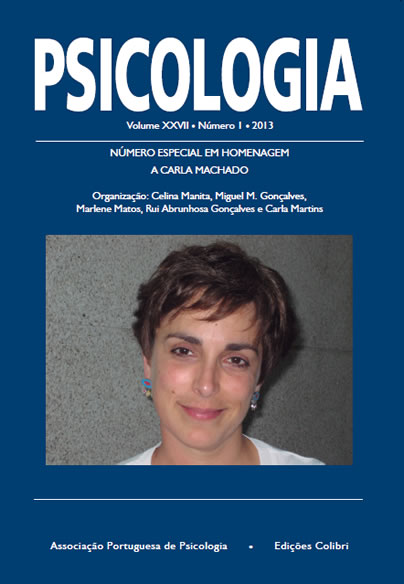Narrative construction of sexual abuse: The role of victims as actors in the process of change
DOI:
https://doi.org/10.17575/rpsicol.v27i1.240Keywords:
-Abstract
The research on sexual abuse in childhood and adolescence has been reporting a variety of potential adverse consequences of abusive experience in the victims’ development, but it is relatively scarce on the factors that characterize the adaptive/resilient development. In this sense, a study was conducted with victims of sexual abuse (based on the narrative model of White and Epston), whose purpose was to understand the abusive experience and the associated change processes. 16 in-depth qualitative interviews were conducted with victims of sexual abuse and the data was submitted to a process of grounded analysis and coding, using the of Innovation Moments Coding System. The results reflect a considerable diversity of IMs, with Reflection as the most salient IM while Reconceptualization appears underrepresented. The change resources identified by the children include social support (peers, family and teachers), the disclosure, expectations of justice, religious beliefs and the construction of new meanings for the self. These resources were viewed as dimensions that reinforce the personal competence and the perception of control. The narrative model was useful in understanding the dynamics of meaning of the process of change, emphasizing the role of children as active “protagonists” of their personal narratives of abuse.


